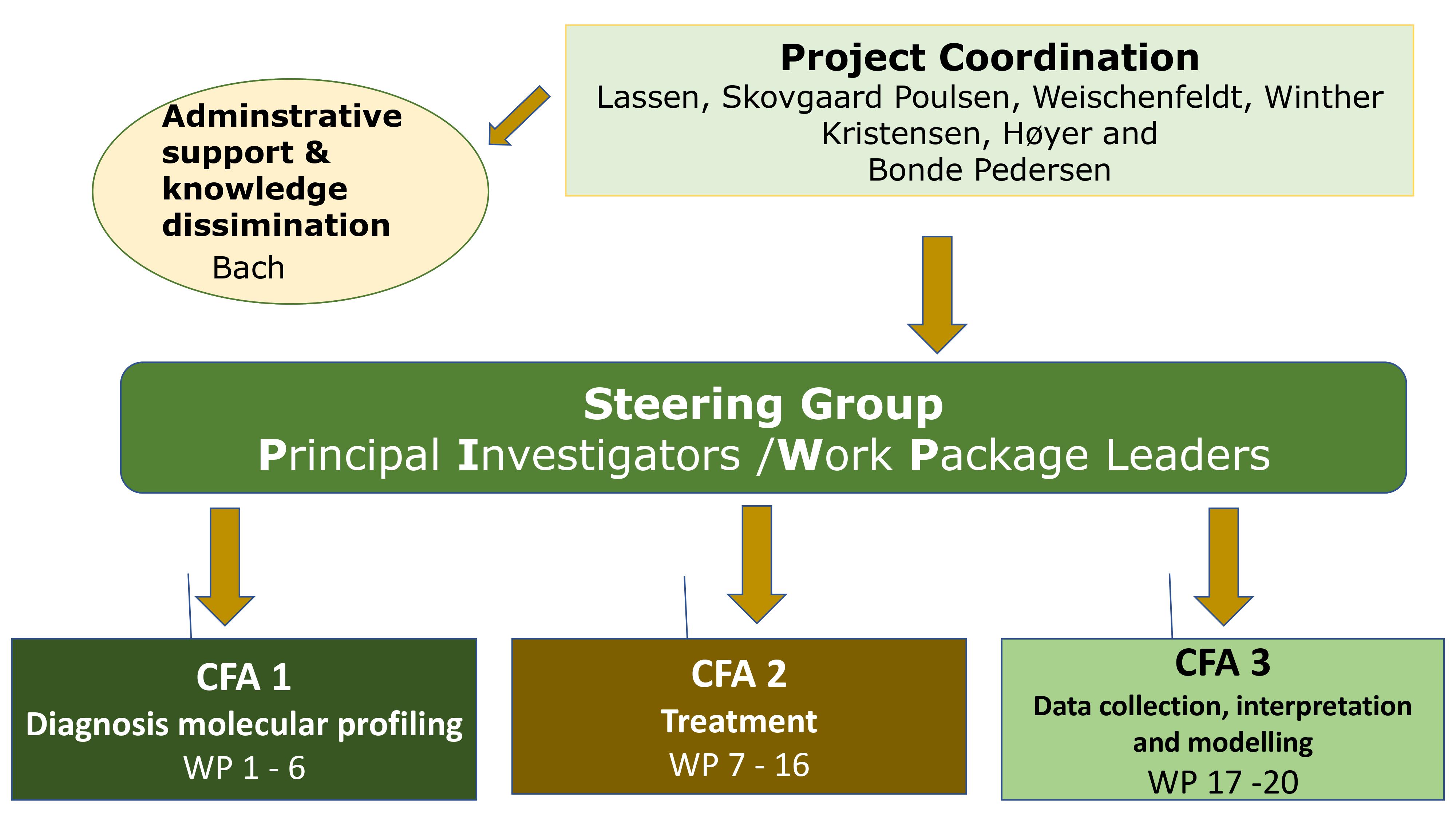The research centre's focus is brain cancer among adult patients. The most common tumour forms are gliomas, and gliomas are categorised as low-grade or high-grade. The higher grade, the poorer the prognosis. Survival among patients with the most aggressive – and most common – type of brain cancer, glioblastoma, has not changed significantly over the last 15 years. Half of the patients diagnosed die within 20 months – and the five-year survival is just 10 percent.
Therefore, the centre's overall aim is to improve and thus prolong survival.
The aim is initially achieved by mapping genomes from several brain tumours and systematically collect data on the treatments' effect. The ambition is to improve patient's future prospects with a giant leap in the right direction.
Prolonged survival will be achieved through translational and cross-disciplinary research involving basic and clinical researchers to identify novel targeted treatment modalities. At the same time, the centre works to improve surgical and diagnostic treatment procedures and explore new intra-operative treatments. The centre will develop and test novel drug candidates in pre-clinical models and establish new and innovative national investigator-initiated clinical phase I/II trials.
The centre will, based on the collected data, create a database with real-world data and real-world evidence, which will be used in studying the causal relationship between diagnosis, treatment and effect. Thereby, knowledge on improving survival ship among patient with brain cancer is produced at the centre.

